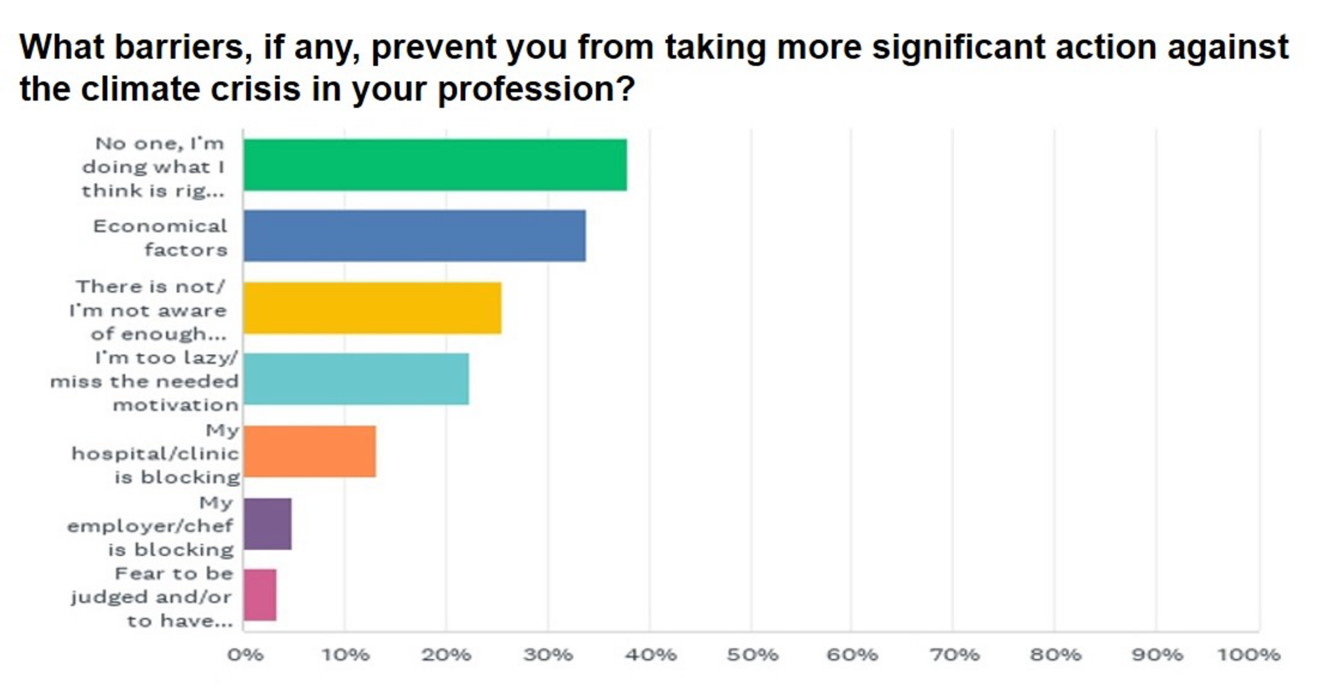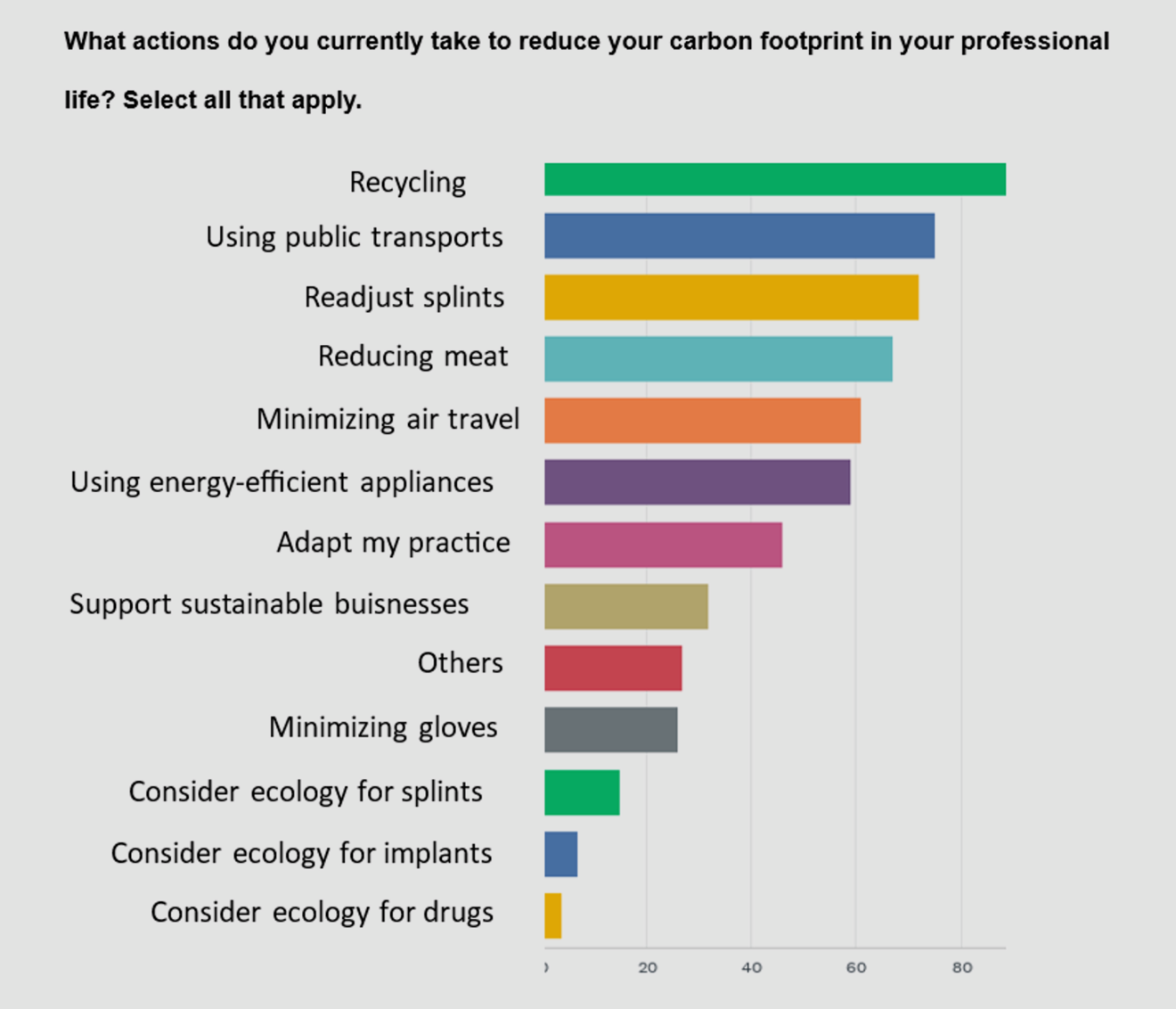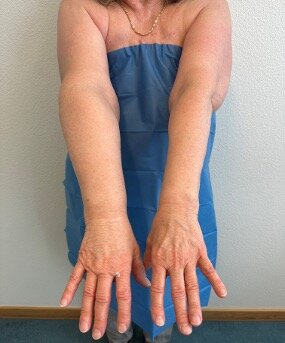In recent years, there has been a growing emphasis on ensuring that hand surgery is both economical and environmentally sustainable.1 This change is mainly due to rising healthcare costs and the urgent challenge of climate change.2
Although the main responsibility of healthcare professionals is to care for patients, the planet's health is increasingly vital for public health because of the new challenges posed by climate change.3; 4 Despite some existing sustainability awareness in global broader healthcare settings, specific research or initiatives focusing on hand therapy are still being determined.5 The present short report addresses some gap by exploring Swiss hand surgeon and therapists’ awareness, practices, barriers and potential strategies concerning sustainability and foster environmental responsibility within the hand community.
Methods
A national online survey was conducted to understand their views on climate change and sustainable healthcare. This survey asked about general attitudes towards climate change, clinical practices, and awareness of community initiatives. The findings were presented at the 2024 Swiss Society for Handsurgery and Hand Rehabilitation annual meeting, where a session on sustainable hand surgery was proposed. A similar survey was distributed after the session to gather data on any changes in perspectives. The survey included demographic and specific questions about attitudes, practices, and awareness of national climate change initiatives, with responses analyzed both quantitatively and qualitatively. Descriptive statistics were used for the demographics and questionary results. A t-test or Mann-Whitney U-Test was used to see the changes from pre- to post-session. Significance level was set at p=0.05.
Results
The online survey was conducted via open link sent through the communication channels of the Swiss Association of Hand Surgery (SGH) and the Swiss Association of Hand Rehabilitation (SGHR) . The replies gathered were 133 responses. The respondents included 64 hand therapists (48%) and 69 hand surgeons (52%). A significant majority (66%) expressed strong concern about the issue. Regarding healthcare's role in Switzerland's greenhouse gas emissions, 47% identified it as "substantial (5-10%)" Wich was the correct answer 6. Awareness of sustainability initiatives was low, with 62% unaware of any. Many felt Swiss hand healthcare professionals were not doing enough for sustainability, though many were taking personal actions to reduce their carbon footprint (Fig. 1). Barriers included feeling they were doing enough (38%), lack of motivation (22%), economic factors (34%), and lack of evidence supporting sustainable actions (26%) (Fig. 2). Regarding a session at a national meeting on November 28, 2024, 60% expressed interest in attending the session on eco-sustainability
The second post-session survey received 26 responses. A large majority (84%) were very or extremely concerned about the issue. Knowledge about the healthcare system's carbon footprint improved significantly (p=0.042), with 70% answering correctly with "substantial (5-10%)" 6 compared to 47% in the initial survey Awareness of sustainability initiatives also increased significantly (p<0.001), with 72% more informed. Feedback on the session was 100% positive.
Conclusion
The session highlighted the integration of eco-friendly practices in medical processes, emphasizing their dual benefit of enhancing patient care and protecting the environment. It underscored the importance of considering ecological impacts and inspired discussions on sustainable strategies for professional implementation. This reflection on current methods aims to align with sustainable development goals, fostering a culture of sustainability in healthcare. By collaborating and sharing knowledge, the session encourages practical changes such as pre-operative Hand Therapy appointments for Trauma patient, reduce the consumption of unnecessary material during surgery and in the fabrication of splints, reducing the use of consumables and promoting the use of reusable tools and accessories, avoiding disposable and Recycle materials where possible.
At the end of the session, a brainstorming was carried out with the participantsthrough concrete ideas for a greener future in hand surgery and rehabilitation.
- Bravo D, Gaston RG, Melamed E. 2020. Environmentally responsible hand surgery: Past, present, and future. J Hand Surg Am. 45(5):444-448.
- Martins FP, Paschoalotto MAC, Closs J, Bukowski M, Veras MM. 2024. The double burden: Climate change challenges for health systems. Environ Health Insights. 18:11786302241298789.
- Conrad K. 2023. The era of climate change medicine-challenges to health care systems. Ochsner J. 23(1):7-8.
- Rocque RJ, Beaudoin C, Ndjaboue R, Cameron L, Poirier-Bergeron L, Poulin-Rheault RA, Fallon C, Tricco AC, Witteman HO. 2021. Health effects of climate change: An overview of systematic reviews. BMJ Open. 11(6):e046333.
- Witt P, Ayhan E, Hagert E, Naqui Z. 2022. The global fessh green survey: Sustainability in hand surgery. J Hand Surg Eur Vol. 47(9):983-986.
- Mermillod B, Tornare R, Ray N, Flahault A. Santé-environnement. Comment décarboner notre système de santé: le cas du canton de Genève [Health-environment. How to decarbonize our healthcare system: the case of the canton of Geneva]. Rev Med Suisse. 2025 May 7;21(917):982-986.












